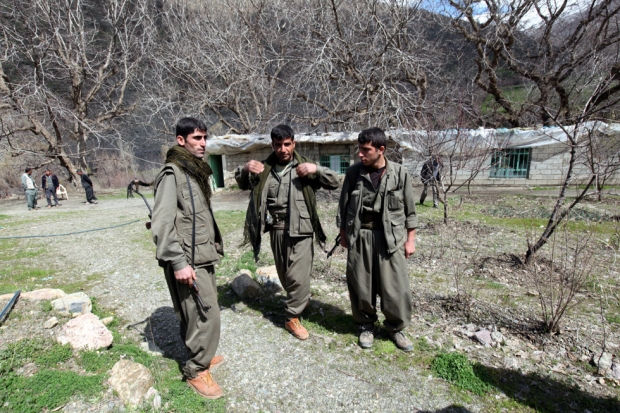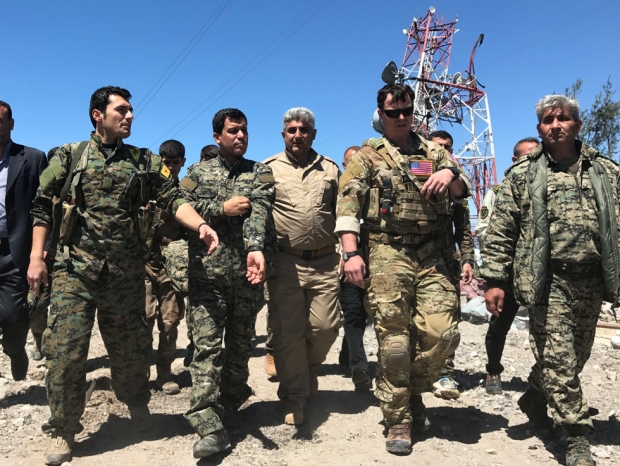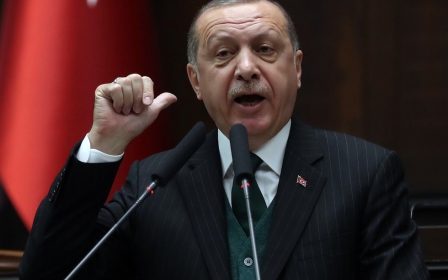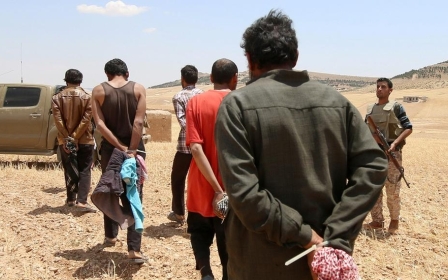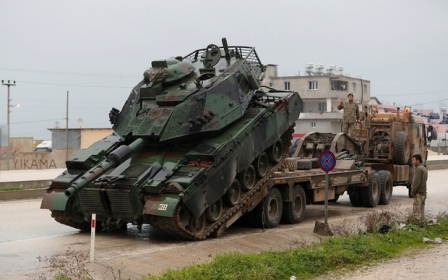Turkey strikes PKK in Iraq, as allied forces in Syria near key objective
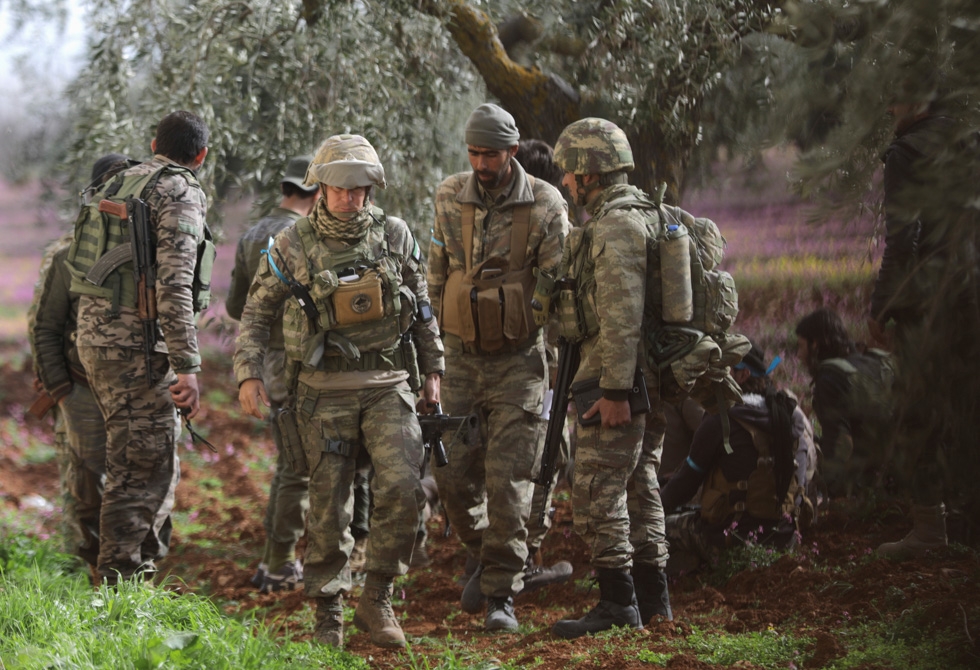
Turkish warplanes hit PKK targets in northern Iraq over the weekend as its forces in Syria neared the city of Afrin, a key objective its campaign to oust Kurdish forces from its border region.
At least 18 targets belonging to the outlawed Kurdistan Workers' Party (PKK) in northern Iraq were hit on over the weekend, the state-run Anadolu news agency said on Sunday.
The strikes targeted the Hakurk, Zap, Metina, Gara and Avasin-Basyan regions of northern Iraq, Anadolu said, citing Turkish military sources.
The PKK has been leading an armed insurgency against the Turkish government for greater Kurdish autonomy since 1984 in a conflict that has killed some 40,000 people.
The group, which is considered a terrorist organisation by Turkey, the European Union and the United States, is based in the Qandil mountains of Iraq, where it is often the target of Turkish air strikes.
The latest Turkish strikes came as its forces and allied militias neared a key objective in northern Syria in a separate campaign to drive a Kurdish militia from its border region.
After initially making slow progress in the mountainous region, Turkish forces captured the major town of Jandairis on Thursday, allowing them to advance within sight of the largest town in the region, also called Afrin.
"Turkish forces [and allied rebels] are on the edges of Afrin, less than two kilometres from the town's northeast," said Rami Abdel Rahman, the head of the Syrian Observatory for Human Rights (SOHR).
They successfully captured the Brigade 135 military base from pro-Kurdish forces, both Abdel Rahman and an AFP correspondent embedded with the rebel groups said.
Pro-Ankara fighters could be seen taking heavy machine guns and ammunition from the base, even as they continued to exchange fire with nearby Kurdish fighters.
The operation, known as Operation Olive Branch, aims to expel the YPG from the Afrin region, which is a Kurdish exclave split off from other YPG-controlled territory.
A possibility for escalation
Despite being rivals with the Syrian government and having clashed with the Syrian army at times in the war, the YPG has asked Damascus to help it repel the Turkish assault.
Last month, pro-Syrian government militias entered Afrin region to back up the YPG, but their deployment did not deter Turkey despite the possibility of a wider escalation in the war, and it continued its campaign.
According to SOHR, at least 370 YPG fighters and 340 rebel fighters have died since the assault began.
It says more than 200 civilians have also been killed, but Turkey denies the reports and says it takes the "utmost care" to avoid civilian casualties.
Ankara says 42 Turkish soldiers have died in the fight.
US air support for the YPG in the fight against Islamic State in Syria and the presence of US troops on the ground with the YPG have greatly strained ties between Ankara and Washington, both NATO members.
"Once we have purged the terrorists [from Afrin] we will then cleanse them from Manbij, Ayn al-Arab [Kobane], Tal-Abyad, Ras al-Ayn and Qamishli," he said in televised comments.
Manbij, the next main YPG-held town east of Afrin, is a particular flashpoint as it has an American military presence there.
Ayn al-Arab, better known by its Kurdish name Kobane, has huge symbolic importance as it was the epicentre of a struggle with the Islamic State group that was eventually won by the pro-Kurdish forces in alliance with Syrian Arab forces.
Qamishli is seen as the main town of the YPG-controlled region.
New MEE newsletter: Jerusalem Dispatch
Sign up to get the latest insights and analysis on Israel-Palestine, alongside Turkey Unpacked and other MEE newsletters
Middle East Eye delivers independent and unrivalled coverage and analysis of the Middle East, North Africa and beyond. To learn more about republishing this content and the associated fees, please fill out this form. More about MEE can be found here.


